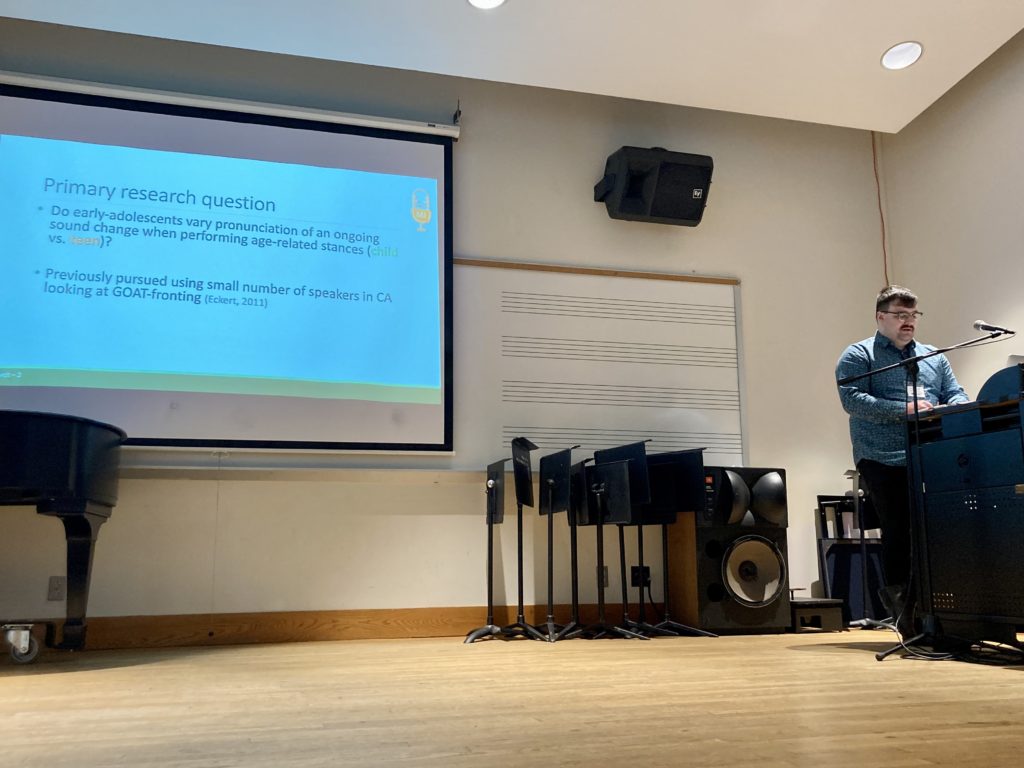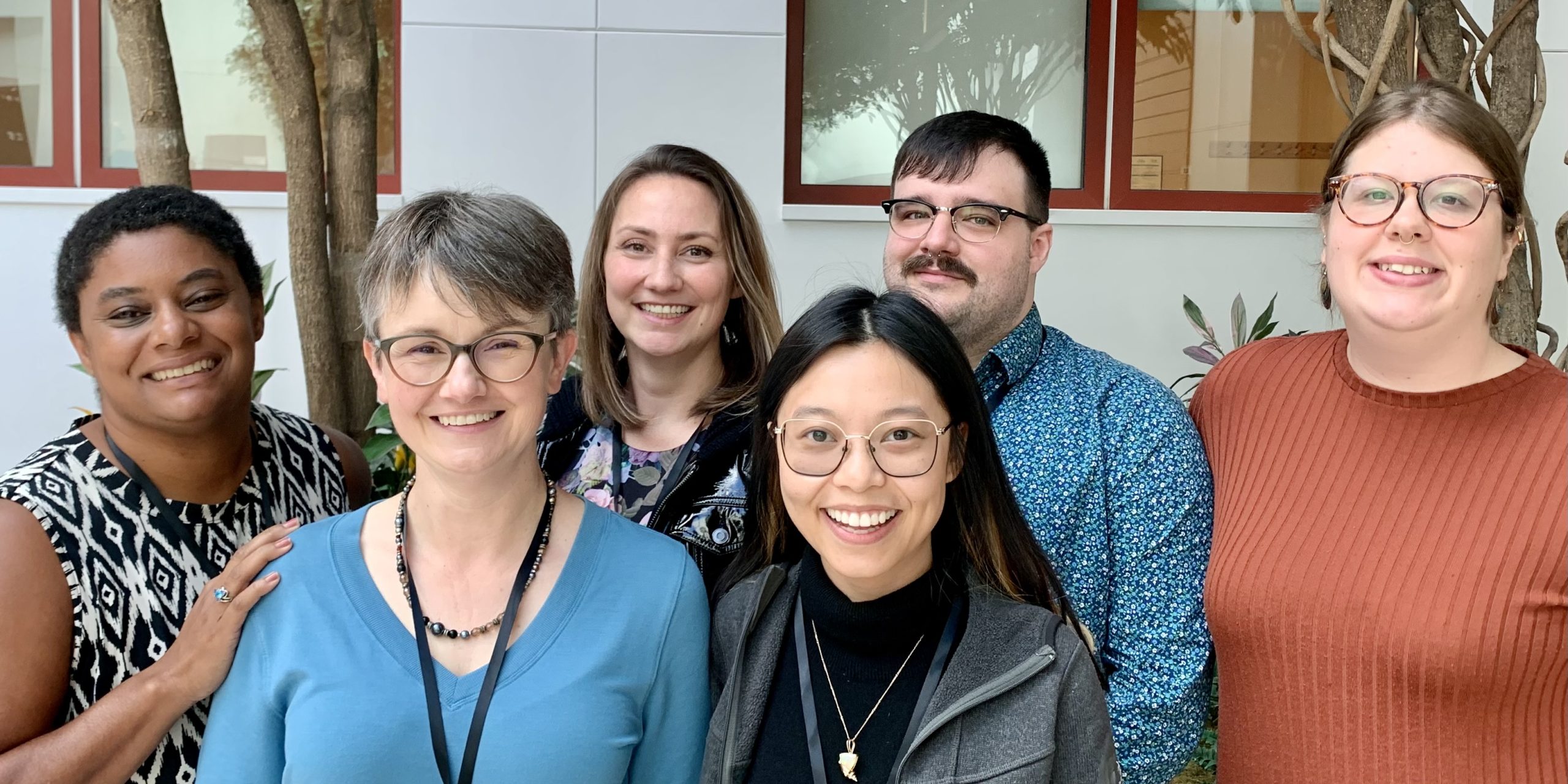MSU students, faculty, and alumni presenting at NWAV 52

The following people from the Sociolinguistics Lab will be presenting at NWAV 52 this year:
- Adam Barnhardt is seeking expert input on the next stage of his ongoing project via a Project Launch poster titled: Patterns of social meanings indexed to Low-Back-Merger Shifted vowels in Michigan.
- Connor Bechler will present prior work that he undertook at the University of Kentucky: Evaluating wav2vec2 speech recognition and forced alignment on a multi-varietal language documentation collection.
- Jessica Shepherd, Drake Howard, and Betsy Sneller will present interim results from Jess’s first PhD qualifying paper research: Pronunciation in the [mɪɾən]: Post-tonic /t/ flapping in Michigan: a non-white male-led change.
Adam’s work and the study by Jess, Betsy, and Drake all use speech data from the MI Diaries project.
We’ll also be looking out for presentations by the former MSU people shown in bold below:
- James Stanford, George Stain, Monica Nesbitt: Phonological foundations of ethnic divergence: The Low-Back Merger Shift and the African American Vowel Shift as opposite movements.
- Kaitlyn Owens and Monica Nesbitt: Changing boundaries: Evidence from Northern Cities Shift categorical perception in Michigan.
- Amalia Robinson, Monica Nesbitt and Xiao Dong: The phonology of Black women in Boston (across age, ethnicity, and style).
- Xiao Dong, Fengming Liu, Monica Nesbitt, and Chien-Jer Charles Lin: Social perception of neutral tone and rhotacization in Mandarin Chinese: How do Beijing and Taiwan speakers differ and does place orientation matter?
- Rebecca Roeder: /ay/ glide weakening in North Carolina and the origins of the Southern Vowel Shift.
- Dennis Preston and Terumi Imai-Brandle: Reconstructing American English inputs in a globally available mass media product: Intensifiers in the television series Gilmore Girls.
See you in Miami!





